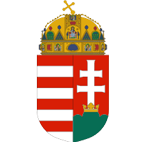
Introduction
The basic function of the National Directorate General for Disaster Management, Ministry of the Interior (NDGDM), is protecting the lives and the property of the population living in Hungary and insuring the safe operation of the national economy and protecting the elements of the critical infrastructure. It is a highly important public safety task; therefore NDGDM is a law enforcement body with a national competence.
Its main mission is preventing disasters as an authority; carrying out rescue operations in civil emergencies; organizing and controlling protection activities; eliminating the negative consequences of emergencies and performing reconstruction and rehabilitation.
In order to fulfill its function:
- It possesses a wide range of industrial safety, fire safety and civil protection authoritative competences: regulates, permits, prohibits, restricts, controls and sanctions. In order to prevent emergencies it coordinates the activities of other authorities.
- It has national, county, district and local professional organizations, voluntary and obligated civil protection bodies, a large pool of equipment, a well-established logistics background. It operates a business entity manufacturing and repairing special equipment, covering entire Hungary. It effectuates investment and property management.
- It possesses important competences in identifying and monitoring the critical infrastructure in Hungary, and in civil emergency planning, in defense/protection administration, in the mobilization of the national economy, and in the State reserves management.
- It regulates and directly commands and controls the national fire protection system. Its local on-call professional bodies perform firefighting and conduct technical rescue operations, protect, inform and alert the population. It controls the participation of municipal and industrial fire brigades, and voluntary fire associations in firefighting and technical rescue operations. It effectuates the county level deployment control.
- It maintains broad international relations, based on bi- and multilateral agreements; it represents Hungary in the professional organizations of UN OCHA, EU and NATO; in the International Association of Fire and Rescue Services (CTIF) and the international organization of fire officers.
- It maintains regional training bases, runs the Disaster Management Training Center, administers the Disaster Management Institute of the National University of Civil Service, operates the Central Orchestra, the Museum and the Research Institute. It publishes a monthly periodical, a professional magazine, other publications and educational materials; it manages the scientific activities of the disaster management system and maintains a sports club.
- It maintains an up-to-date telecommunications network, a deployment control and IT system, furthermore, measuring, detecting and public alert systems, covering the entire area of the country.
- It cooperates with other law enforcement bodies, the Hungarian Defense Forces, municipalities and other authorities ensuring public safety.
- It maintains relations with non-governmental and charitable organizations, with their federations, educational and scientific institutions and the media.



